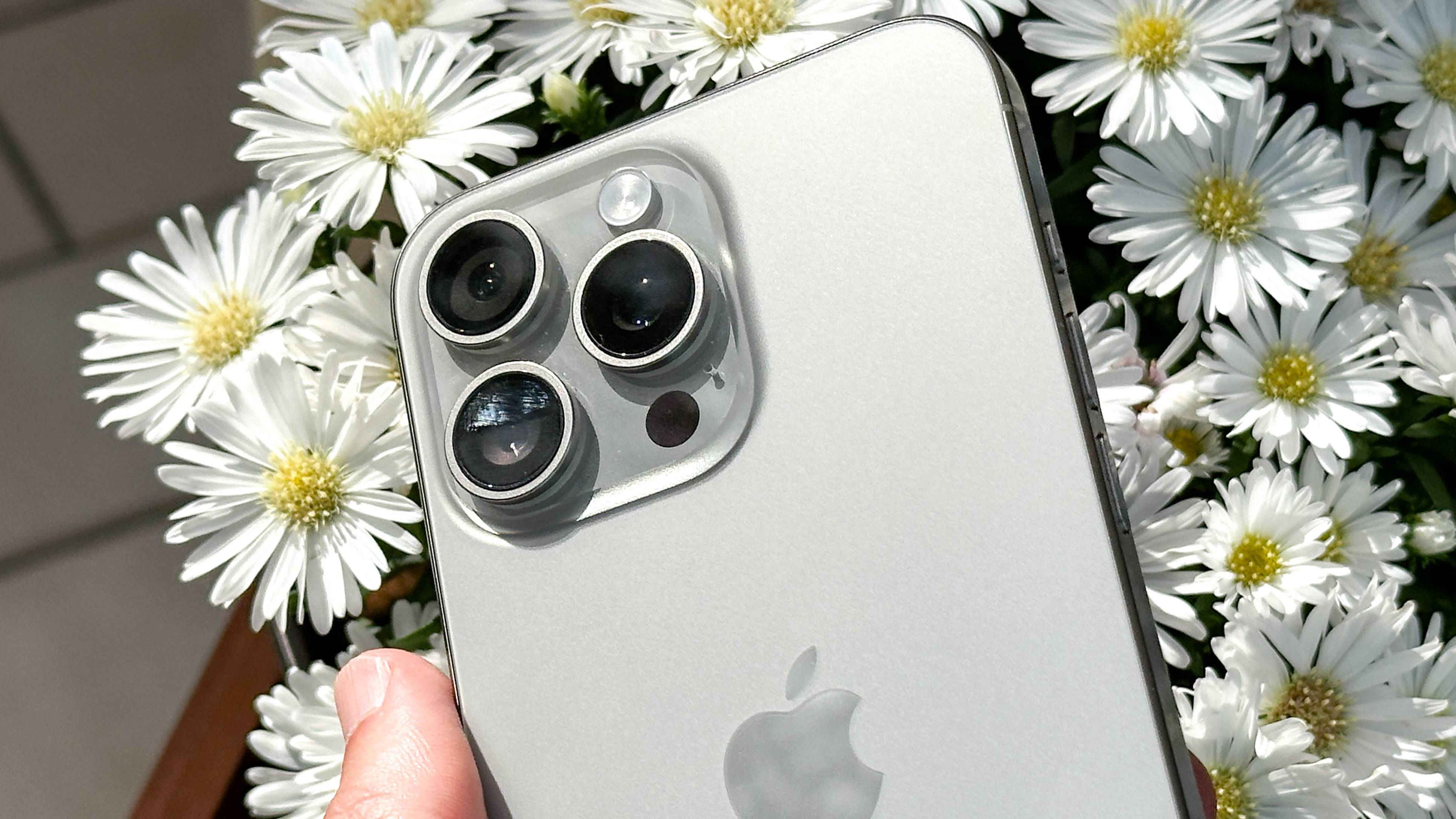iPhone 15 Pro Max camera — Apple reveals why it has just 5x telephoto zoom
Why not 10x zoom?

We now know Apple's reasoning for why the iPhone 15 Pro Max's telephoto camera with its tetraprism lens offers a 5x zoom and not higher levels, thanks to an interview conducted by French outlet Numerama.
Speaking with Apple's VP of camera software engineering Jon McCormack and senior director of iPhone product marketing Maxime Veron, Numerama asked the obvious question about why Apple didn't go for a higher magnification with the iPhone 15 Pro Max. We know it could have done if it wanted, since rival phones like the Samsung Galaxy S23 Ultra feature more impressive telephoto cameras, in Samsung's case a 10MP 10x zoom number.
So why did Apple decide 5x zoom was sufficient? Apparently, it comes down to stabilization and way a typical iPhone owner users the cameras
As McCormack explains (via Google Translate): “The 5x zoom is something that we can stabilize incredibly well. If you look at 10x zoom, it's really difficult to use unless you have the world's steadiest hands or a tripod. When we think about creating a feature, we always ask ourselves "who is going to use it?""
"We build cameras that people use," McCormack explains further. "The iPhone is an incredibly social camera. With a 10x zoom, the people are very far away. You lose that intimacy."
Veron noted that the iPhone 15 Pro Max's telephoto camera had a large aperture that helps with quality too. A big aperture means more light on the camera sensor, which in theory translates to brighter, more appealing images from the iPhone telephoto camera than in higher magnification telephoto cameras, which tend to use smaller apertures to help with focusing.
A win for stability, but not for versatility
So Apple's argument is that 10x zoom on a phone doesn't work if you're just taking photos with your phone in your hands, rather than attached to a tripod or other stand. And from my experience, it's got a point.
Sign up to get the BEST of Tom's Guide direct to your inbox.
Get instant access to breaking news, the hottest reviews, great deals and helpful tips.
In my time using the Galaxy S23 Ultra's 10x zoom camera, I've found it's quite simple to use, and is quite stable when held in two hands. But that said, it's definitely harder to properly frame a shot simply due to the natural movement in my hand. You can't point-and-shoot in the same way you can with typical smartphone cameras.
I'm less certain about Apple's point on the iPhone's camera being people-focused. I tend to take a lot of images of landscapes, buildings and scenery with the phones I'm testing, and having a powerful zoom lets you frame subjects you can't simply walk closer to, like the tops of buildings or a distant hill, with surprising ease. And besides, Apple does aim the iPhone 15 Pro Max at enthusiast users who are depicted as using their phone to capture professional-grade photos and video, not just snaps of a night on the town.

A 5x zoom image from the iPhone 15 Pro Max.

A 10x zoom image from a Samsung Galaxy S23 Ultra.
For instance, the two shots above show how much closer to a subject you can get with a 10x zoom compared to a 5x zoom. The overall quality's pretty similar too, even with Apple's larger aperture. That's why I don't feel that 10x zoom is quite as niche a smartphone feature as Apple's suggesting.
Apple's shown time and again it's not interested in pursuing the latest smartphone technology until it feels good and ready. We can see that with the iPhone 15's display still only being 60Hz despite all rival Android devices offering at least 90Hz refresh rates. Perhaps if smartphone camera stabilization does reach a point where it can keep a 10x zoom shot steady, we'll see it added to a future iPhone. But for now, you're either going to have to settle for a mix of optical and digital zoom on the iPhone 15 Pro Max, or switch to the Galaxy S23 Ultra if you want this magnification level in a smartphone photo.
The whole iPhone 15 series goes on sale tomorrow, but there's still time to make iPhone 15 preorders if you want. Just make sure you're well informed by reading our iPhone 15, iPhone 15 Plus, iPhone 15 Pro and iPhone 15 Pro Max reviews before making any buying decision.
More from Tom's Guide

Richard is based in London, covering news, reviews and how-tos for phones, tablets, gaming, and whatever else people need advice on. Following on from his MA in Magazine Journalism at the University of Sheffield, he's also written for WIRED U.K., The Register and Creative Bloq. When not at work, he's likely thinking about how to brew the perfect cup of specialty coffee.
